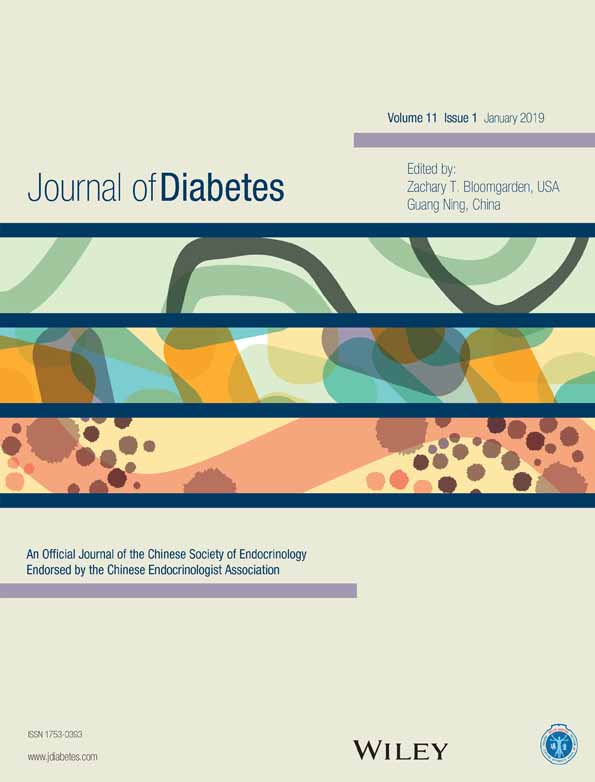Clinical characteristics of adolescent cases with Type A insulin resistance syndrome caused by heterozygous mutations in the β-subunit of the insulin receptor (INSR) gene
胰岛素受体(INSR)基因β亚基杂合突变所导致A型胰岛素抵抗综合征的青少年病例临床特征
Abstract
enBackground
Type A insulin resistance (IR) is a rare form of severe congenital IR that is frequently caused by heterozygous mutations in the insulin receptor (INSR) gene. Although Type A IR requires appropriate intervention from the early stages of diabetes, proper diagnosis of this disease is challenging, and accumulation of cases with detailed clinical profiles and genotypes is required.
Methods
Herein we report on six peripubertal patients with clinically diagnosed Type A IR, including four patients with an identified INSR mutation. To clarify the clinical features of Type A IR due to INSR mutation, we validated the clinical characteristics of Type A IR patients with identified INSR mutations by comparing them with mutation-negative patients.
Results
Four heterozygous missense mutations within the β-subunit of INSR were detected: Gly1146Arg, Arg1158Trp, Arg1201Trp, and one novel Arg1201Pro mutation. There were no obvious differences in clinical phenotypes, except for normal lipid metabolism and autosomal dominant inheritance, between Type A IR due to INSR mutations and Type A IR due to other factors. However, our analysis revealed that the extent of growth retardation during the fetal period is correlated with the severity of insulin signaling impairment.
Conclusions
The present study details the clinical features of four patients with genetically proven Type A IR. Further accumulation of genetically proven cases and long-term treatment prognoses following early diagnosis are required to further elucidate the dynamics of this disease.
Abstract
zh摘要
背景
A型胰岛素抵抗(IR)是一种罕见并且严重的先天性IR,常常是由于胰岛素受体(insulin receptor,INSR)基因杂合突变所导致的。虽然A型IR需要从糖尿病的早期阶段就开始进行适当的干预, 但是要正确诊断这种疾病却很有挑战性, 需要积累具有详细临床特征与基因型的病例。
方法
在这里我们报道了6例临床诊断为A型IR的青春期患者, 包括4例已确认有INSR突变的患者。为了阐明由于INSR突变所导致A型IR的临床特征, 我们通过将他们与突变阴性的患者相比较, 证实了具有明确INSR突变的A型IR患者的临床特征。
结果
检测到了4种ISNR β亚单位上的杂合点突变:Gly1146Arg、Arg1158Trp、Arg1201Trp以及一种新的Arg1201-Pro突变。在INSR突变导致的A型IR与其他原因导致的A型IR之间, 发现除了正常脂质代谢与常染色体显性遗传之外, 临床表型都没有明显的差异。然而, 我们的分析结果显示, 胎儿期生长迟缓的程度与胰岛素信号传导障碍的严重程度相关。
结论
本研究详细介绍了4例经基因证实的A型IR患者的临床特征。为了进一步阐明这种疾病的动态变化, 需要进一步积累经基因证实的病例, 并在早期诊断后观察长期治疗的预后。




